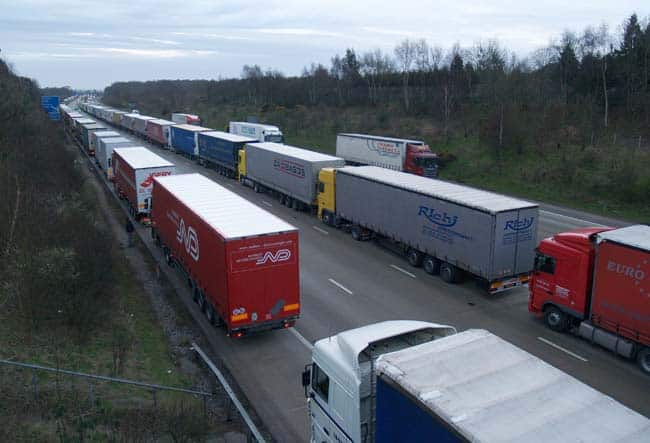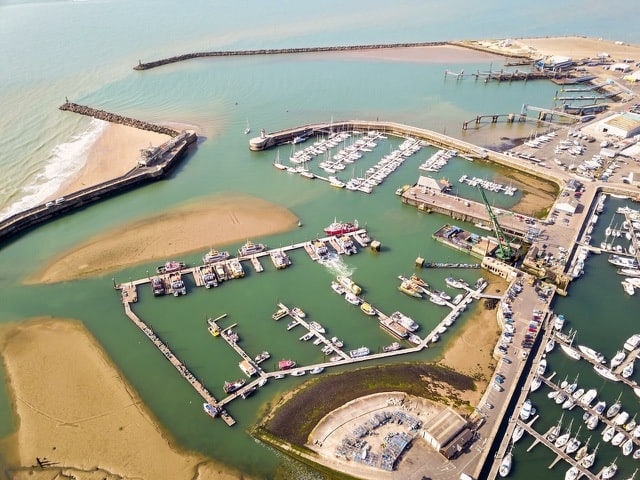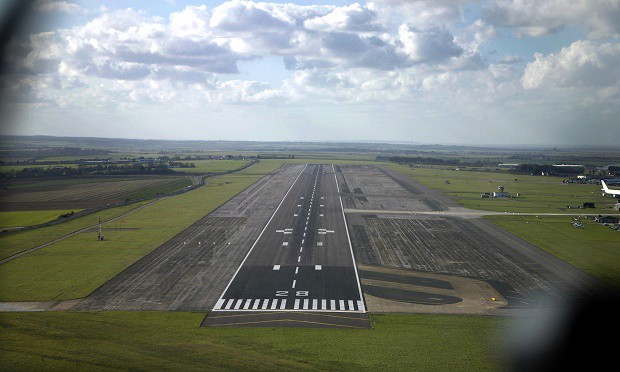
A contract worth £13.8million has been awarded to Seaborne Freight – the firm that proposes to run a Ramsgate/Ostend ferry route – by the Department for Transport.
The firm is one of three which received a share of £107million in contracts designed to provide extra ferry capacity to UK ports in the event of a no deal Brexit on March 29.
The others are French company Brittany Ferries, receiving £46m and DFDS with an award of £47m.
A report from the BBC says “in documents outlining the agreements, the DfT states that an “unforeseeable” situation of “extreme urgency” meant there was no time for the contracts to be put out to tender – the standard practice for public procurements.”
The ferry firms would add extra crossings to their timetables. It is not clear how the terms for Seaborne Freight, which as yet is not recorded as owning any vessels, will work but the procurement document says there will be”additional freight capacity on ferry services between England and Belgium.” The contract also states the ferry services must be operational by March 29.
It says: “The Department for Transport (the “Authority”) has awarded a contract to Seaborne Freight (UK) Ltd for the supply of additional freight capacity on ferry services between England and Belgium in order to minimise the potential disruption of trade across the Short Straits in the event that the UK leaves the EU without an agreement. The ferry services under the contracts are to be operational by 29.3.2019.”
The notice was released on Christmas Eve.
The company has been contacted for comment.
It is reported additional crossings would be at Poole, Portsmouth, Plymouth and Felixstowe and Immingham. Ramsgate is not specifically mentioned but did form part of contingency plans announced in November.

The aim is to alleviate pressure on Kent’s roads which would come with a ‘hard border’ and could lead to a backlog of traffic, particularly HGVs, trying to access Dover Port and the Eurotunnel.
In November Thanet council said the Port of Ramsgate could have the potential to provide enough sailings to divert 3,360 lorry movements per day from the planned Operation Brock queuing system on the M20 and M26 to support ‘post-Brexit resilience.’
A spokesman said that a review of the port’s capability had been carried out and, with a £26million investment, Ramsgate has the potential for up to 24 sailings a day.
The Government is looking at plans to combat the Dover ‘bottleneck’ and potentially boost trade with Belgium due to possible routes to Ostend and Rotterdam.

Thanet council says Ramsgate Port is one of the UK’s largest municipally-owned commercial ports and is the second closest to the continent, meaning it could play a significant part in providing additional capacity.
But the port cannot currently accommodate the larger cross-Channel ferries with just one vessel identified as being capable of using the ro-ro facilities due to the restricted size. This is the former Dover-Calais ferry MS Nord Pas de Calais.
Despite negotiations with Seaborne Freight no deal has yet been signed for a ferry service from Ramsgate. A service had been mooted to start in March but there has been no update on progress to date.
There has not been a cross-Channel operation at Ramsgate since the collapse of TransEuropa in 2013 which left Thanet council owed an unpaid debt of £3.4 million accrued by the ferry firm in port fees.
The port also requires significant dredging.
In July Kent County Council said it was urging the Government to invest in the Port of Ramsgate and make more use of current lorry parking facilities at the Manston airport site as part of the Brexit preparations.

It has been forecast that, in a no-deal Brexit scenario, Kent will need to cope with holding up to 10,000 HGVs on a routine basis.
In the authority’s contigency plan Operation Brock – the updated version of Operation Stack- contains 5 phases for dealing with a backlog of HGVs. Phase 1 uses the A20 and Dover and Eurotunnel buffer zones, phase 2 is a contraflow system on the M20, phase 3 diverts Port of Dover freight to Manston and the A256. The plan outlines capacity at Manston for up to 6,000 lorries.
Phase 4 uses the M26 and phase 5 takes traffic out of the county.

